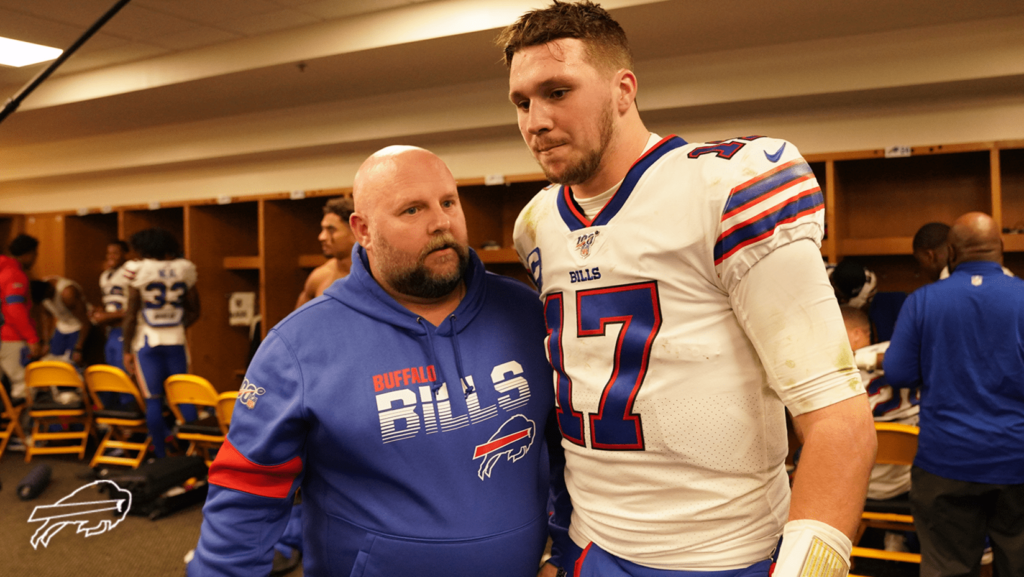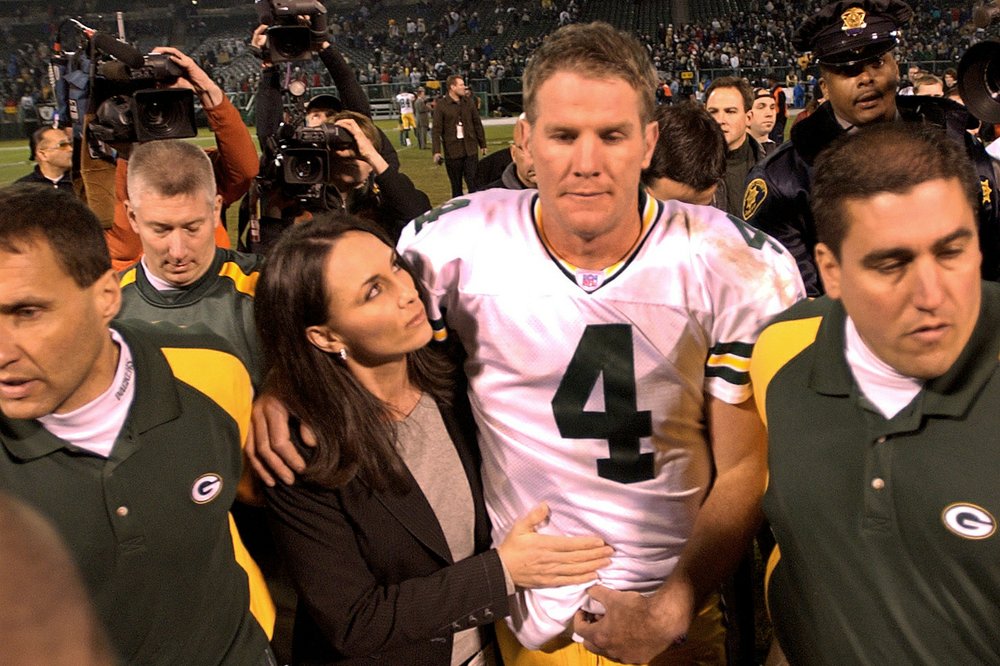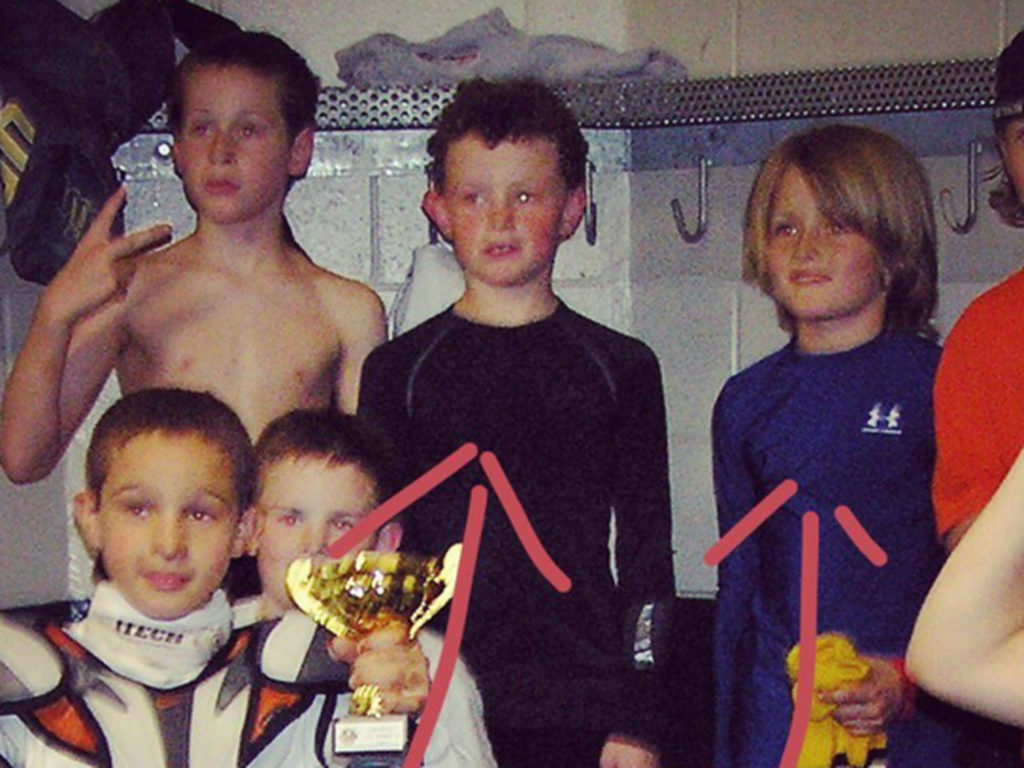
There was something different about Josh Allen’s demeanor during Sunday’s big win over the Seattle Seahawks at Bills Stadium. It was hard not to notice his serious expression when cameras panned the sidelines. In spite of the fact that the Bills had a lead throughout the game, Allen was not his usual upbeat self.
As a retired psychotherapist, I watch the sidelines like Erik Turner from Cover-1 reviews game film. As a behaviorist, you can glean as much information by observing people in their natural environment as you can from a therapy session.
Of course we found out exactly why Josh Allen’s mood seemed unusually somber on the sidelines. Sean McDermott reported that Josh’s paternal grandmother, Patricia Allen, unexpectedly died at the age of 80 on Saturday.
Having worked with the issue of grief with clients for several decades, I learned a great deal about how people grieve, and the way they cope with the sudden loss of a loved one. It’s much more complicated than simply stating that everyone grieves in their own way because there are many factors that play a role in determining how one processes grief.
For example, Josh determined he needed to play the game on Sunday even though it would have been understandable if he didn’t. What made that the right decision for him? Furthermore, why do we often see professional athletes perform at a high level following the death of someone close to them?

It seems like yesterday when we watched Brett Favre play the game of his HOF career after learning his father had suddenly died in 2003. We marvel at the intestinal fortitude it takes to stuff your feelings and go out and perform, especially as a quarterback in the NFL… one of the most challenging positions in sports.
So why does grief propel players to perform at their very best while their heart is breaking?
To simply attribute it to ‘motivation’ glosses over the real value in examining how a particular player responds to distress. Professional athletes are comfortable being stressed to the max, in fact many thrive on it. In some ways, that’s what makes them different than the rest of us.
So when a professional athlete is faced with the sudden death of a loved one, we wonder… how do they do it? How do they bear down and perform at such a high level?
Professional athletes are often super achievers. They get that way by being driven at a level the rest of us can only imagine. Often these traits show up at an early age, suggesting they are somewhat imprinted in our DNA, as McDermott likes to talk about frequently when describing players.
Read any story about the early life of an elite professional athlete and you will find that common thread of relentless passion, usually at an early age. Imagine being seven years old and playing hockey with players twice your age and skating circles around them.

Jack Eichel was four years old when he announced to his family that he was going to play in the NHL. Josh Allen applied to nearly 1,000 Division I college football programs despite being told he was too small. (hard to imagine he weighed about 80 pounds less in high school than he does now).
To state these individuals are driven is an understatement because most are actually obsessed with their goals. This obsession drives them to hone their ability to focus so intently that many live insular lives devoid of other social activities to round out their personality. Their lives are often not ‘normal’ in any sense of the word.
So when a professional athlete faces the unexpected death of a family member, this generates a different type of grief reaction from what many of us experience. The life of a professional athlete often demands so much time there is little left over for family members.
Siblings of professional players often talk about the difficulties they faced growing up when one child is physically gifted. Parents focus on the gifted child and so much attention is paid to them that siblings are sometimes left behind with feelings of inadequacy.
A great deal of sacrifice is made by family members, so that when a death in the family occurs there are sometimes mixed feelings of anguish and even guilt for not being able to spend more time with them. As professional athletes, they often react in the only way they know how… take it out on the field, ice rink or wherever their sport is played.
So it should come as no surprise that Josh Allen went out and played the game of his young NFL career after learning that his ‘Grammy’ died the previous night. Channeling emotional pain isn’t very different than channeling physical pain for most athletes. The mental discipline required is a transferrable skill.
The reaction Josh Allen had after the game as described by Brian Daboll was not surprising. Right after the game, Daboll described how Josh basically collapsed into his arms and finally let out his feelings of grief and pain. Athletes become experts at controlling their emotions, but once they finish their task at hand, the floodgates open and they allow grief to wash over them.
The Bills are blessed to have empathetic leadership providing whatever support Josh Allen needs to process his grief. We should be thankful as fans that our players are in capable hands and treated with love and kindness. These days, we could all use a little dose of this ourselves.
~The Caboose~
[Author note: check out our latest Mafia Mavens podcast from Buffalo Rumblings… we take a look at the victory over the Seahawks and much more].

2 Responses